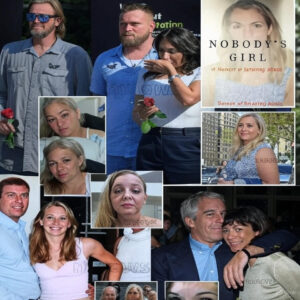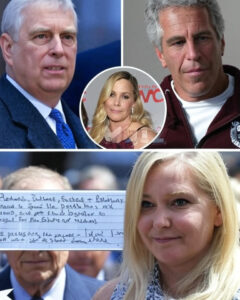The Letter That Ignited the Firestorm


In a revelation that has thrust Woody Allen back into the unforgiving glare of public scrutiny, the acclaimed filmmaker’s 2016 birthday letter to Jeffrey Epstein resurfaced in August 2025, courtesy of a New York Times exposé on the disgraced financier’s opulent Upper East Side mansion. Allen, 89, likened Epstein to “Dracula,” jesting about the “young women” who frequented his home like “victims” drawn to the vampire’s lair. This quip, part of a collection of messages for Epstein’s 63rd birthday, has reignited debates over Hollywood’s tangled ties to the convicted sex offender. The letter’s tone—playful yet unsettling—has left many questioning Allen’s judgment, especially amid his own controversies, pulling the Epstein saga from archival shadows into today’s headlines.

Allen’s Epstein Encounters: Dinners with the Devil
Allen’s connection to Epstein wasn’t fleeting. In a September 2025 interview with The New Yorker, the director admitted attending multiple dinner parties at Epstein’s townhouse post-2010, after the financier’s release from prison for soliciting a minor. Describing Epstein as “charming” and “couldn’t have been nicer,” Allen recounted evenings with “illustrious people,” including former Israeli Prime Minister Ehud Barak and Nobel laureate Murray Gell-Mann. These gatherings, he claimed, were intellectual affairs, devoid of any impropriety he witnessed. Yet, the disclosure has stunned observers, contrasting sharply with Epstein’s known predatory behavior. Allen’s wife, Soon-Yi Previn, often accompanied him, adding a personal layer to the narrative that has fueled speculation about what was truly discussed behind those gilded doors.
The Broader Implications: Resurfacing a Scandal
This stunning admission rocks the Epstein saga at a time when unsealed documents continue to expose the financier’s web of influence. Epstein, who died in 2019 under suspicious circumstances ruled as suicide, maintained relationships with elites across politics, science, and entertainment. Allen’s letter and dinner anecdotes amplify calls for accountability, particularly as survivors like Virginia Giuffre’s posthumous memoir echoes similar themes of cover-ups. The revelation has prompted renewed scrutiny of Allen himself, whose past allegations of misconduct with adopted daughter Dylan Farrow resurface in tandem. Legal experts suggest it could encourage more witnesses to come forward, potentially unraveling further threads in Epstein’s network of enablers.
Public Backlash and Defense: A Divided Response
The disclosure has elicited a firestorm of reactions. Social media erupted with condemnation, branding Allen an apologist for predators, while supporters defend it as harmless banter from a bygone era. Advocacy groups for sexual abuse survivors, such as those tied to Giuffre’s legacy, decry the normalization of Epstein’s circle. Allen, in response, has remained defiant, insisting in follow-up statements that he was unaware of Epstein’s crimes at the time and attended purely for stimulating conversation. This defense, however, has done little to quell the outrage, with calls for boycotts of his films gaining traction online. The saga underscores a cultural reckoning, where past associations with Epstein continue to tarnish reputations long after his death.
Legacy in Question: What Comes Next?
As the dust settles, Allen’s disclosure forces a reevaluation of Epstein’s enduring shadow over Hollywood. With ongoing investigations into Maxwell’s appeals and unsealed files naming other celebrities, this moment could be a tipping point. Will it lead to new revelations or further silence? Allen’s step from shadows to spotlight, intentional or not, reminds us that truth often emerges in unexpected ways, leaving the public to grapple with uncomfortable alliances. In an era demanding transparency, this eruption might just be the spark that ignites a fuller reckoning.
Leave a Reply